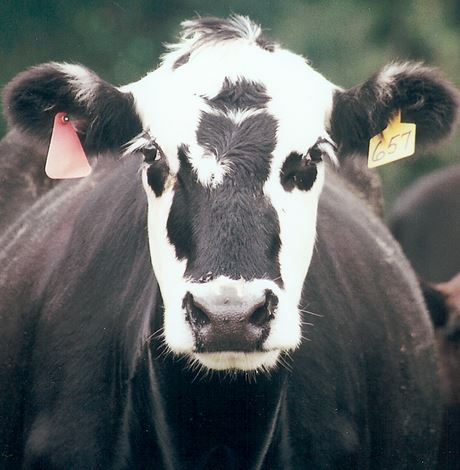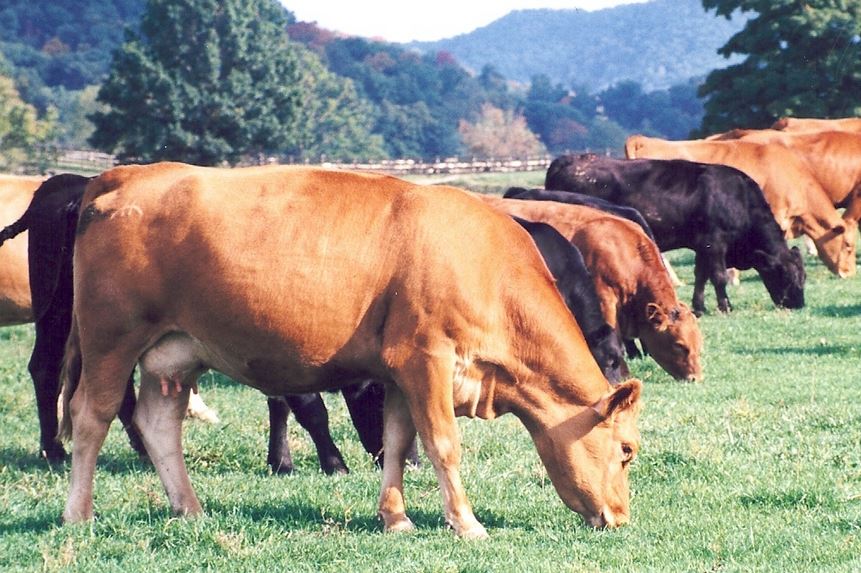



Harassed Herd? Prevent Flies and Control Fly Numbers
Flies are a perennial issue and something you can get on top of if you prepare early and act now, US cattlemen are being told.Livestock farmers have many things up their sleeve in terms of controlling flies, from reducing waste to investing in insecticide ear tags, harnessing fly predators and using growth regulators.
An obvious place to start is on the prevention side, say advisers at Southern States, an agricultural supply cooperative in the US.
Their warning is that a fly control plan should be in place before temperatures begin to rise.
Waste Management
They advise that if you remove the grounds for which flies breed, and you will start to notice a significant decrease in the number of flying foes circling your herd. Your first line of defense is creating a fly management program.
“Buildup of organic matter is the biggest breeding grounds for flies,” says Southern States PAS certified ruminant nutritionist, Mike Peacock. With the average 1,250 lb. beef cow generating 75 lbs. of manure a day, this leaves many areas for flies to reproduce.

Southern States say that an average fly life cycle lasts anywhere from 10 to 21 days. In order to break the fly cycle, you need to remove fly-breeding materials on a regular basis.
Manure, wet grain, spilled silage, moist hay — focus on these areas first. “You can eliminate a large portion of flies by simply cleaning the hay rings where cattle were fed all winter,” said Mr Peacock. Start by removing manure from livestock pens as frequently as possible.
Take the manure and spread it thinly on fields or other large outdoor areas to facilitate drying. Flies cannot develop in dry environments, therefore they cannot develop in dry manure. Drag your fields to more evenly distribute manure. The key is to dry out the manure.
Pay special attention to areas where your herd congregates, such as water troughs, shady areas and gates. These areas should be cleaned weekly at a minimum to diminish fly breeding and control parasites. Remember, it’s easier and more cost-effective to prevent fly breeding than to try and control adult flies already born. The quicker you can remove their habitat and breeding grounds, the better off you’ll be.
Ear Tags
Insecticide ear tags are one of the best devices for deterring flies. Harmlessly hung in the animal’s ears, these tags are packed with various chemical compounds that can protect your herd from horn flies and biting lice. This is a proactive approach that can ultimately save you money—and grief! The chemicals contained in tags can vary, so check with your local Southern States to see which ear tags are right for your herd. Make sure you put tags in each ear and also put them on your calves. Only putting the tags in one ear will be ineffective.

Fly Predators
Not all flies are bad. Fly predators, nature’s own self-inflicted enemy, can be your ally in the fight against pest flies. These are tiny, non-stinging, non-biting wasps that feed on fly larvae and interrupt the breeding cycle of flies, destroying the next generation of flies before they hatch into disease-carrying adults.
Fly Predators work by both laying eggs in the fly pupa (or cocoon) and feeding on fly larvae while it’s in the manure on your farm. The wasps “bug” the bugs but never disturb the cattle, pasture plants, or humans for that matter.
Although a natural method of controlling flies, fly predators aren’t typically found in large enough amounts to control the entire fly population on your farm. However, many companies sell fly predators and can ship them straight to your farm. Once they arrive, all you have to do is sprinkle the predators on manure piles at dusk and watch them go to work.
As a rule of thumb you should replenish your fly predator supply once a month from April to September. It’s important to use them during the entire fly season; otherwise the fly life cycle will only be broken for a few weeks.
Dustbags and Backrubbers
Dustbags are a low maintenance, highly effective method of combating troublesome flies. After application, the dust will control horn flies and lice on beef and dairy cattle. The bags of dust are hung across gates or doorways and are easily refillable. The most effective place to hang your bag is a place where the cattle pass by on their way to their water tank. This is known as a “forced-use” situation. You’ll want to hang it low enough so it’s effective on small calves as well as adult animals. If hung and maintained properly, the bags will last for several seasons.
Cattle tend to rub up against objects when they are being pestered by bugs. The backrubber is a rubber surface that is soaked with a pesticide that will deter flies. Your herd will rub up against it and wah-lah — insecticide applied.
Walk-through Fly Traps
Another environmentally-friendly way to get rid of flies is with a walk-through fly trap. As horn flies spend the majority of time during the summer on the backs and sides of cattle, this trap helps reduce their numbers. As cattle walk through the device, the flies are brushed off of them.
Insect Growth Regulator
Feed-through fly prevention supplements and minerals can help rid your facility of horn flies and other manure-lying pests. Insect growth regulators are added to manure, interrupting the life cycle of flies and eliminating the spreading of breeding. They are typically only effective against premature house and stable flies, but can significantly reduce the fly population harassing your herd.
Our winged adversaries can ultimately have a dramatic impact on your bottom life profit. Fly irritation results in reduced feed conversion efficiency and poor general health. The stress of dealing with flies on a daily basis can result in lower birth rates and weaning rates in your herd. “No one method alone will eliminate the problem,” Mr Peacock explained. “You have to take an integrated approach and start early.” Speak to your local Southern States representative about taking a proactive approach to controlling flies around your farm.


